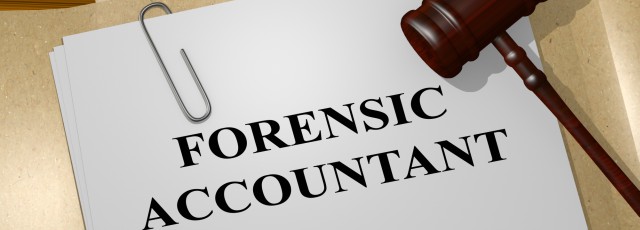Forensic Accountant job description
A Forensic Accountant is a professional who collects and analyzes financial evidence for use in court. They specialize in identifying inaccuracies, tracing discrepancies, and preventing financial fraud. They play a crucial role in investigating complex business cases, developing risk reduction procedures, and presenting findings as trial evidence.
What is a Forensic Accountant?
A Forensic Accountant is a professional who collects and analyzes financial evidence for use in court. They specialize in identifying inaccuracies, tracing discrepancies, and preventing financial fraud. Their role is crucial in investigating complex business cases and providing litigation support through detailed financial analysis.
What does a Forensic Accountant do?
A Forensic Accountant performs forensic research and analysis of financial data to identify potential fraud and revenue loss. They review financial documents, analyze data, and trace discrepancies. They also forecast and prevent financial frauds, report on revenue losses, and investigate complex business cases to minimize risk. Additionally, they provide litigation support and present findings as trial evidence, ensuring compliance with laws and accounting procedures. Their work helps uncover financial evidence and supports decision-making processes in legal proceedings.
Forensic Accountant responsibilities include:
- Reviewing financial documents to identify inaccuracies
- Analyzing financial data and tracing discrepancies
- Forecasting and preventing financial frauds

Job brief
We are seeking a skilled Forensic Accountant to meticulously review our financial records and identify any discrepancies or inaccuracies.
As a Forensic Accountant, your primary responsibility will be to conduct thorough forensic research and analysis of our company’s financial data to uncover potential instances of fraud or revenue loss. Your success in this role will rely on your sharp investigative skills and extensive knowledge of accounting procedures.
Additionally, you will be responsible for organizing the financial evidence into comprehensive reports that will be valuable to attorneys and law officials.
Ultimately, you will play a critical role in developing risk reduction and fraud prevention measures to ensure the precise management of our company’s finances.
Responsibilities
- Review financial documents to identify inaccuracies
- Analyze financial data and trace discrepancies
- Forecast and prevent financial frauds
- Report on revenue losses and damages from contract breaches
- Investigate complex business cases to minimize risk
- Provide litigation support and present findings to be used as trial evidence
- Perform regular financial record audits to ensure compliance with the law
- Ensure all accounting procedures follow legislation
- Keep organized files of all legal cases
- Attend court, when needed
Requirements and skills
- Proven work experience as a Forensic Accountant, Certified Public Accountant (CPA) or relevant role
- Thorough knowledge of Generally Accepted Accounting Principles (GAAP)
- Experience with accounting and financial procedures
- Understanding of forensic auditing procedures
- Familiarity with accounting software and spreadsheets
- Strong investigative and analytical skills
- Excellent numeracy skills with an ability to spot inaccuracies
- The ability to handle confidential information
- BSc degree in Accounting or Finance, preferably with a Certified Fraud Examiner (CFE) or Certified Public Accountant (CPA) certification
- Additional qualification in Economic Crime Investigation or Law Enforcement will be a plus
Frequently asked questions
- What does a Forensic Accountant do?
- A Forensic Accountant collects and analyzes financial evidence for use in court, identifying inaccuracies, tracing discrepancies, and preventing financial fraud.
- What are the duties and responsibilities of a Forensic Accountant?
- The duties of a Forensic Accountant include reviewing financial documents, analyzing financial data, tracing discrepancies, forecasting and preventing financial frauds, investigating complex business cases, providing litigation support, and ensuring compliance with accounting procedures.
- What makes a good Forensic Accountant?
- A good Forensic Accountant possesses attention to detail, strong analytical skills, knowledge of accounting principles, familiarity with forensic auditing procedures, and the ability to handle confidential information.
- Who does a Forensic Accountant work with?
- A Forensic Accountant works with business owners, law enforcement agencies, attorneys, and fraud investigators to uncover financial evidence and support legal proceedings.
- What skills should a Forensic Accountant have?
- A Forensic Accountant should have skills in financial analysis, accounting procedures, investigative techniques, numeracy, attention to detail, analytical thinking, and the ability to handle confidential information.
